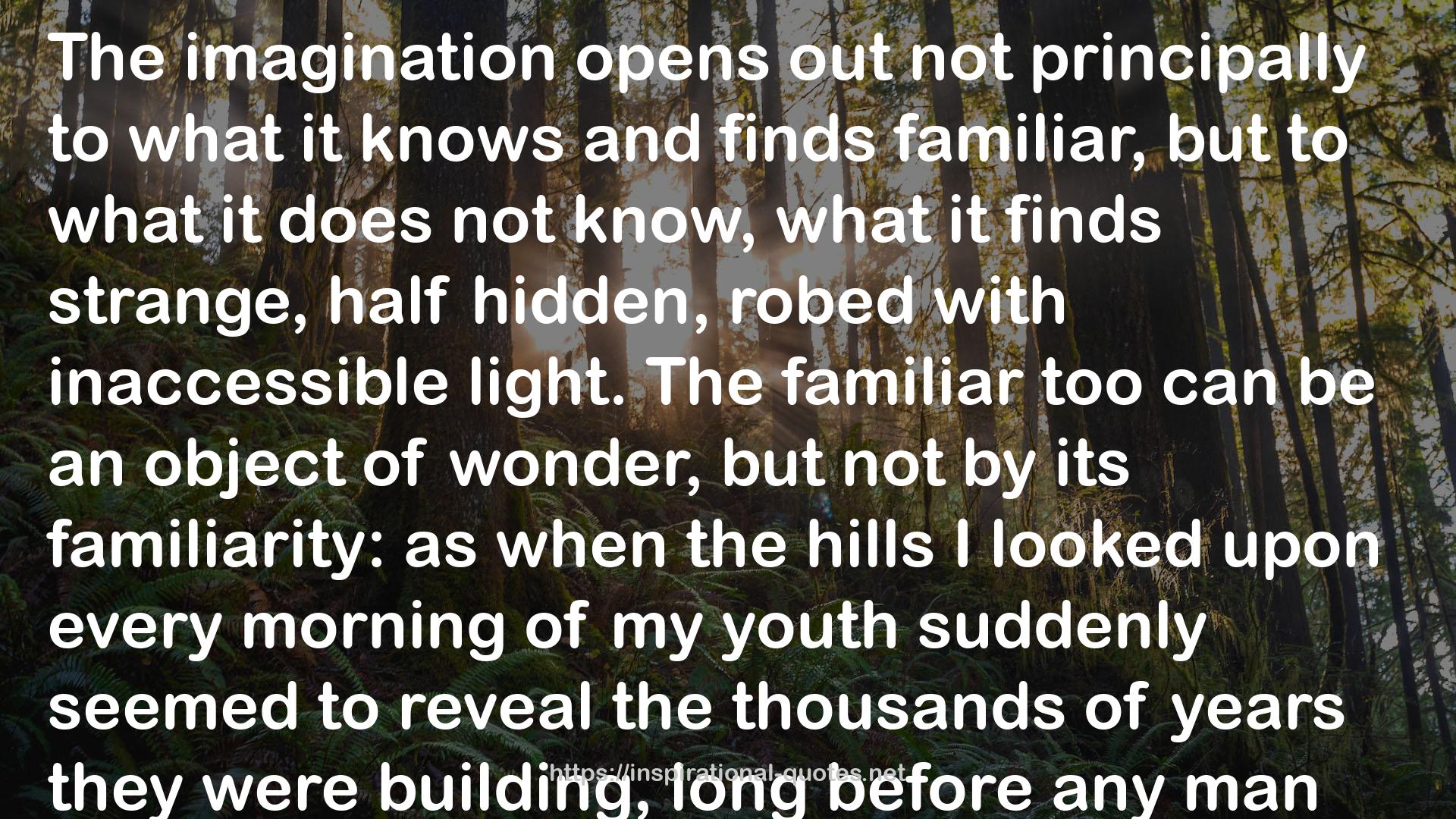" The imagination opens out not principally to what it knows and finds familiar, but to what it does not know, what it finds strange, half hidden, robed with inaccessible light. The familiar too can be an object of wonder, but not by its familiarity: as when the hills I looked upon every morning of my youth suddenly seemed to reveal the thousands of years they were building, long before any man ever left his traces on their slopes. Even the dog at my heels, then, like the dog who wagged his tail when Tobias and he finally came home, reveals itself the more, and is the greater object of wonder, the more I turn to it in love and see that, after all, I do not know him; for a dog too proclaims the wisdom of God.
It is, in the first instance, the very idea of God that guarantees that we can never reduce anything in creation merely to the stuff of which it consists. And, as for God Himself, what greater object of wonder can there be than one who is not the greatest thing-in-the-world, but beyond the world, of whom all things great and small declare, “He made us, we did not make ourselves”? "
― Anthony Esolen , Ten Ways to Destroy the Imagination of Your Child
